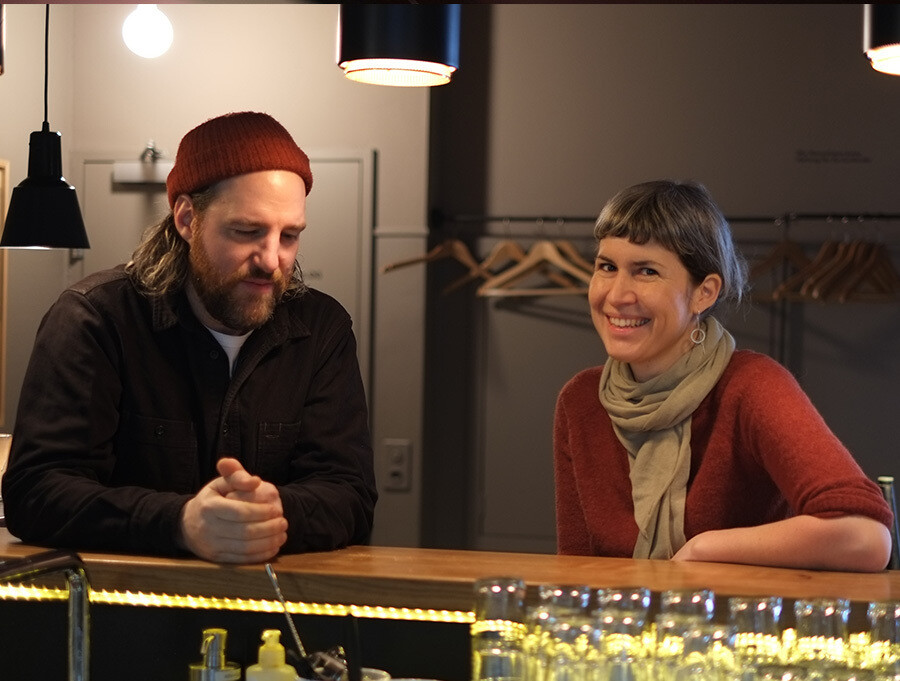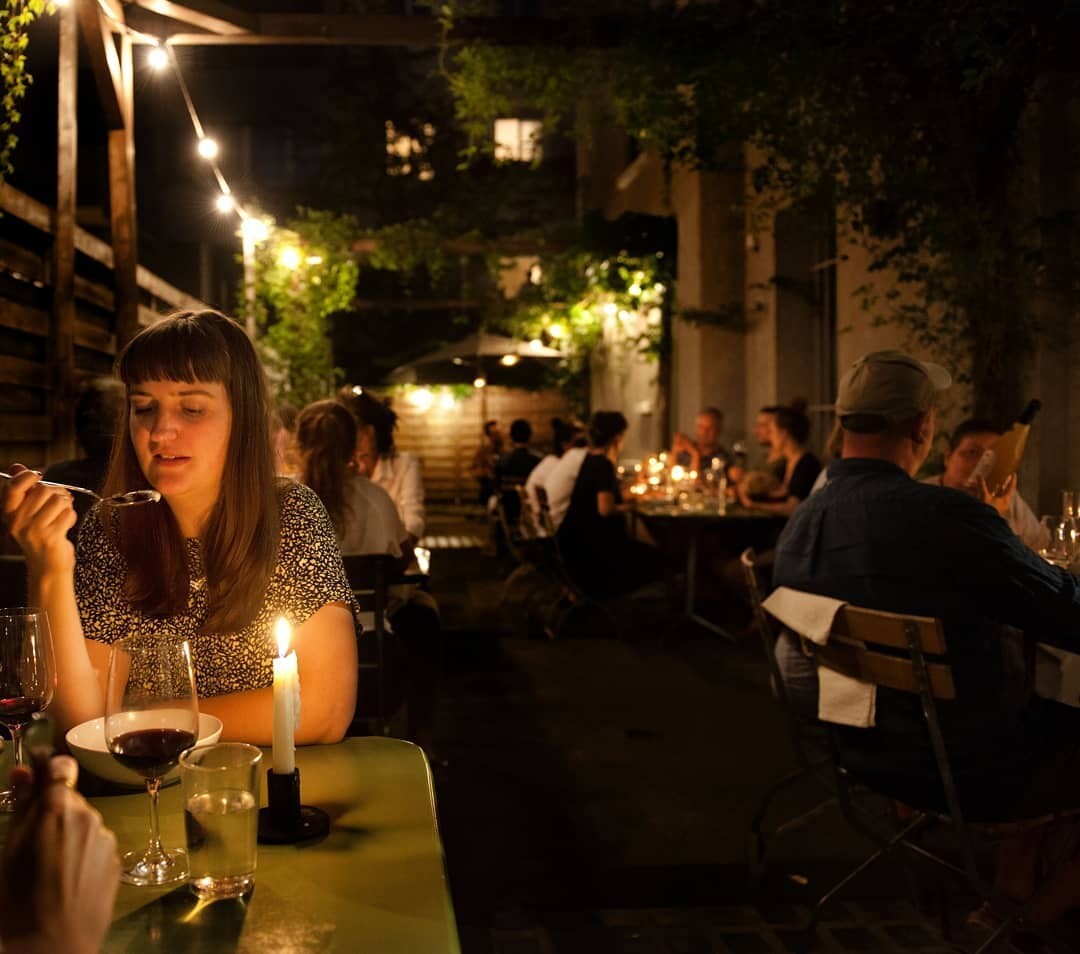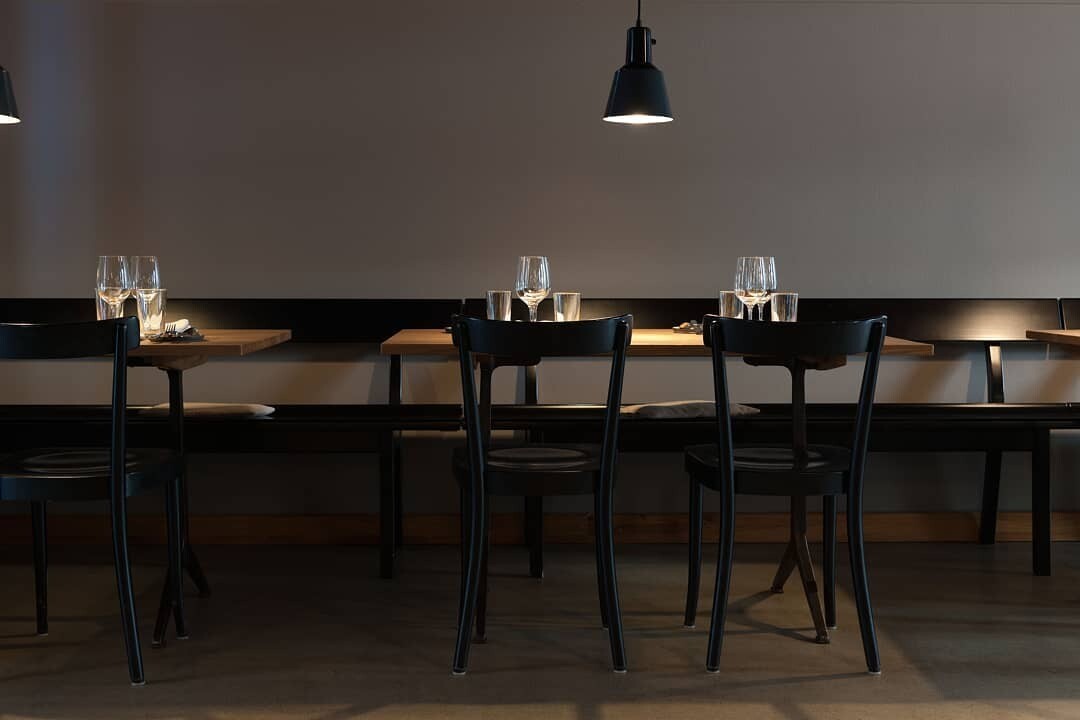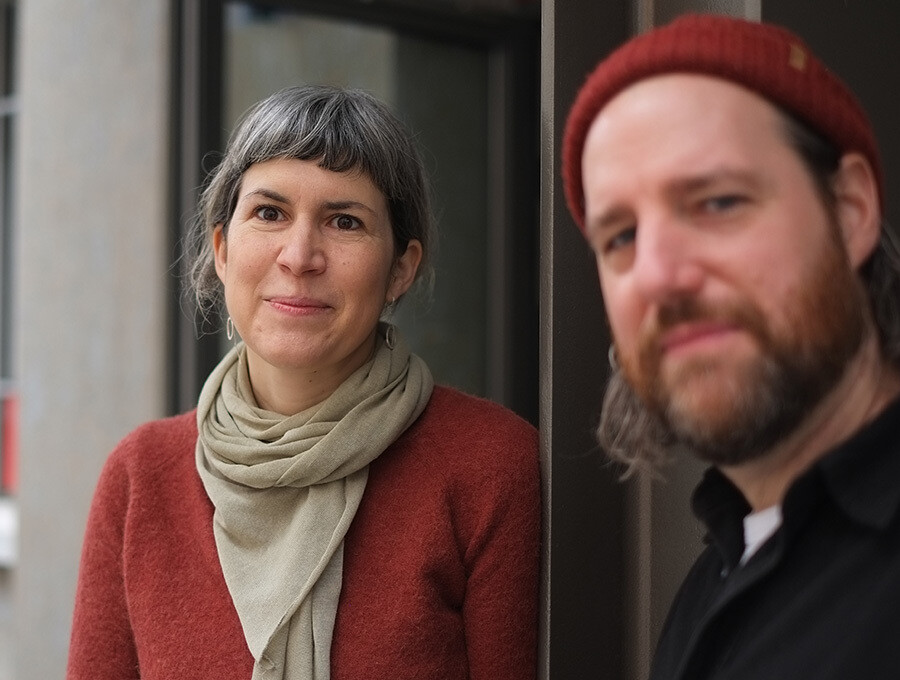Im einem lauschigen Innenhof, unweit vom Bahnhof Wiedikon entfernt, verbirgt sich ein kulinarisches Kleinod – das "Franz", ein Akronym für "Frauen im Zentrum". Hier zelebriert man Kultur, schafft und geniesst. Die "Wirtschaft im Franz" lockt mit einem raffiniert konzipierten Überraschungsmenü. Hier serviert man Ambition auf dem Teller: modern, kreativ, doch wunderbar puristisch, simple, mit einem Augenmerk auf erstklassigen Produkten. Dabei stets im Zentrum: das Gemüse. Die offene Küche, viel Herzblut und ein Team, das die ehrliche Küche wertschätzt, machen aus dem Lokal ein sympathischer Treffpunkt.
Wir durften mit Melanie Kempf und Sebastian Funck über eine simple Küche, Michelin Sterne, gute Zutaten und die hiesigen Küchenschätze reden.
Gute Produkte, das schlichte Handwerk, kein grosses Tamtam. Das ist auch die Wirtschaft im Franz. Was macht eure Küche aus?
Beide: Wir konnten in den letzten zehn Jahren einen kleinen Kreis von Produzent:innen aufbauen, mit denen wir sehr eng zusammenarbeiten. Sie beliefern uns mit aussergewöhnlich guten Grundprodukten, die unsere Küche zu einem grossen Teil ausmachen. Man könnte sagen, diese Lebensmittel erden uns und geben uns beim Entwickeln der Gerichte die Richtung vor. Wir mögen die Konzentration aufs Wesentliche, weniger ist für uns fast immer mehr. Was wie eine abgedroschene Floskel klingt, meinen wir sehr ernst – ein Produkt mit Charakter lässt sich aus unserer Sicht besser in Szene setzen, wenn man es durch wenige Komponenten begleitet, anstatt es mit viel Klimbim zu erschlagen oder davon abzulenken. Wir kreieren gerne Gerichte um eine vermeintlich einfache, bescheidene Zutat herum, wie zum Beispiel eine Zwiebel oder eine Karotte und versuchen den Punkt herauszukitzeln, wo eine simple Zutat bei Gästen einen "Aha"-Moment auslöst.
Ihr wurdet mit einem Michelin Stern ausgezeichnet. Michelin Stern und "Simple" - wie geht das zusammen?
Beide: Die Einfachheit trügt, hinter unseren Gerichten verbergen sich viele unsichtbare Arbeitsschritte. Angefangen bei der Recherche, dem Austausch mit Produzent:innen, bis hin zum wochenlangen Weiterentwickeln eines Tellers und am Schluss dem täglichen Mise en place dafür. Wir waren selbst überrascht, dass uns mit unserer produktfokussierten, einfach anmutenden Küche ohne Schnickschnack ein Stern verliehen wurde. Wir gehen davon aus, dass Michelin mit der Zeit geht und sich nebst dem Fokus auf Küchen, die mit den klassischen Werten, einer gewissen Etikette und dem Hang zu teuren Edelprodukten punkten, zunehmend auch Betriebe beleuchtet, die nachhaltigere Wege suchen und Produkte verwenden, die man mit gutem Gewissen konsumieren kann. Wir sind ein Betrieb, der etwas zu erzählen hat und merken, dass es immer mehr Menschen gibt, die unsere Geschichten hören möchten. Was ist auf meinem Teller? Woher kommt es? Die Gastronomie befindet sich im Wandel, sie muss neue Wege finden um weiterhin erfolgreich zu sein. Am Thema "Ressourcen" kommt niemand mehr vorbei. Wir beschäftigen uns schon sehr lange mit der Frage, wie man achtsamer mit Mensch und Umwelt umgehen kann und versuchen uns stetig weiterzuentwickeln. Wir finden es sehr bereichernd, dass immer mehr Gastronom:innen sich auf den Weg machen eine neue Zukunft für unsere Branche zu finden, während andere weiterhin Hummer und Rindsfilet kredenzen, als gäbe es kein Morgen mehr.

Ihr sagt, dass ihr das Produkt in den Mittelpunkt stellt, nicht euch selber. Welches ist eure aktuelle Lieblingszutat in der Küche? Und was stellt ihr damit an?
Sebastian: Kardy. Ein in Vergessenheit geratenes, widerspenstiges Gemüse mit dem geschmacklich überrascht werden kann.
Melanie: Die Runkelrübe. Dass man mit einer Futterrübe Herzen erobern kann, finde ich grossartig.
Die italienische Küche ist dafür bekannt, dass aus wenigen, dafür hochwertigen Zutaten ein fantastisches Mahl gezaubert werden kann. Sonnengereifte Tomaten, gutes Olivenöl, hausgemachte Pasta, viel mehr braucht es nicht zum grossen Glück. Wie schaut das hierzulande aus? Was hat die simple Küche in der Schweiz oder in Zürich zu bieten?
Beide: Die italienische Küche mit ihrer Einfachheit und dem Fokus aufs Produkt ist für uns eine grosse Inspirationsquelle. Wir haben in der Schweiz so viele gute Produkte, die den italienischen in nichts nachstehen: Dörrbirnen, Alpkäse, Rapssamen, Hanföl, Forellen, Alte Getreidesorten, Milchprodukte, etc., etc. Da gibt es so vieles zu entdecken und erforschen, was man vielleicht eher direkt bei Produzent:innen oder im kleinen Bioladen findet anstatt im Supermarktregal. Die Schweiz bietet eine spannende, einfache Regionenküche und es gibt zum Glück viele Köch:innen die sich auf unterschiedlichste Weise diesem Thema widmen: Peter Brunner, Sven Wassmer, Tine Giaccobo, Stefan Wiesner, um nur einige Namen zu nennen, die wir verfolgen oder einen Bezug zu ihnen haben.

Was ratet ihr den Hobbyköchen:innen da draussen? Wie koche ich Zuhause, um mit wenig Aufwand viel Wirkung zu erzielen?
Beide: Beschränke dich auf wenige gute Produkte, kaufe sie dann ein, wenn ihre Saison ist, auf dem Markt, im Bauernhofladen oder in kleinen Biogeschäften, wo du kleine Produzent:innen unterstützt und weisst wo deine Lebensmittel herkommen.





